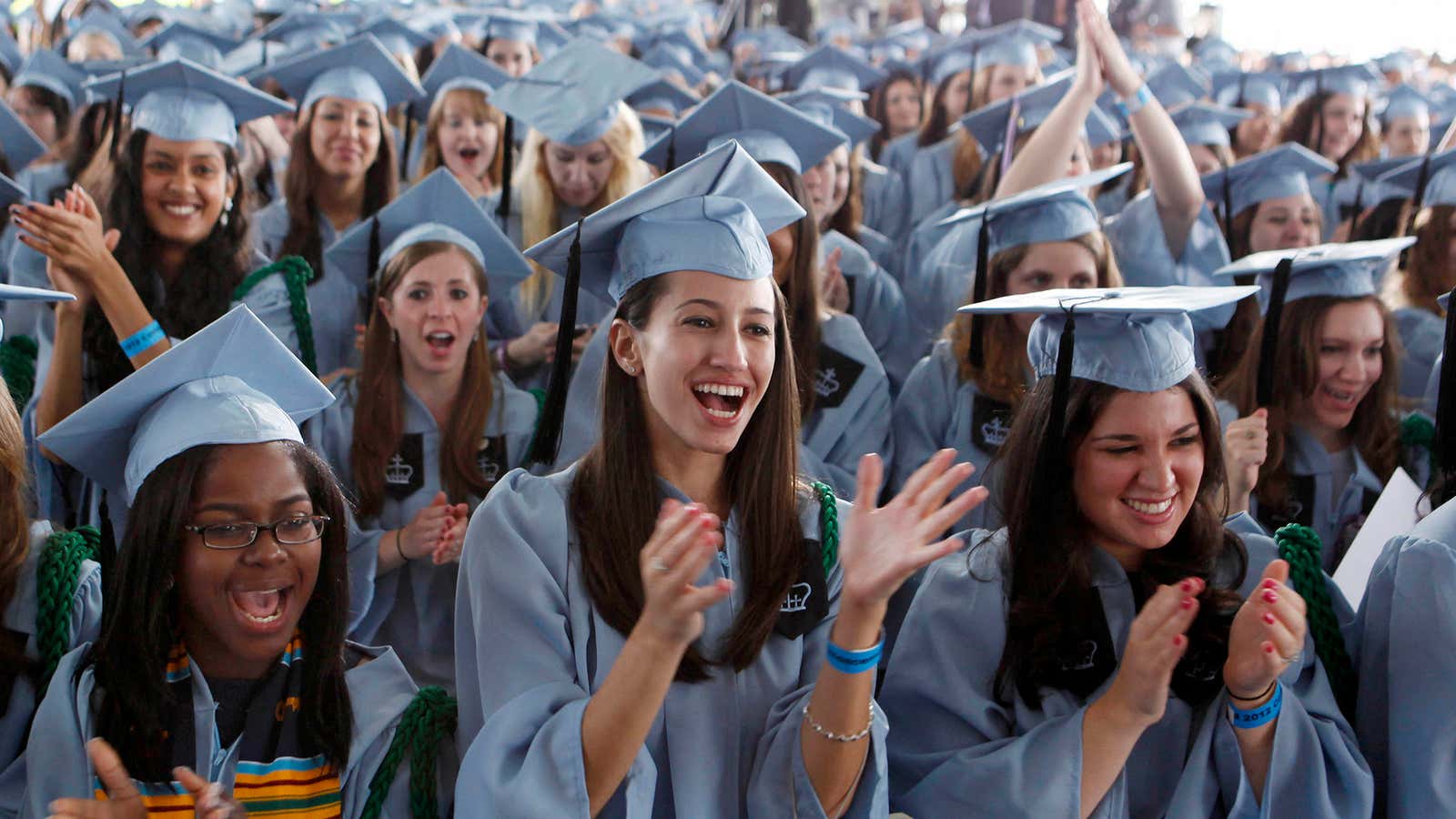If you go to a college with tougher grading standards than average, you’re less likely to get into graduate school, new research shows—and there’s a similar problem within the job market. Correspondence bias, a psychological phenomenon that makes us judge people based on their behavior (like GPA) while ignoring context (like the difficulty of the school attended), could be keeping you from getting the jobs you want.
A recent study by researchers at the University of California Berkeley provides evidence that the bias affects hiring and admissions practices. Until now, corresponding author Samuel A. Swift told Quartz, it’s only been observed in the lab. “It’s a psychological idea that’s been around for quite awhile,” Swift said, “and we had relatively little testing whether the phenomenon has an effect in the real world. We always have to wonder if lab studies reflect on reality, and whether people will make the same mistakes they make in the lab in real-world situations.”
To put correspondence bias to the test, Swift and his fellow researchers used actual admissions staff from US colleges in their experiment. When presented with students for admission, the counselors were more likely to select those with higher GPAs—even when they were also told how each student compared to his or her school’s average. Even if a school’s average GPA was questionably high, indicating grade inflation and poor standards, students who managed a 4.0 there were more successful applicants than those who pulled slightly lower GPAs at much tougher colleges.
And when researchers tested job applicants in a similar way—asking executive business students to evaluate credentials and choose the best hire—the results were the same. When shown applications for airline managers, the evaluators were biased towards those with the best percentage of on time departing flights. This held true even when some applicants came from “difficult” airports and some came from ones with a nearly perfect historical take off record.
Branching into hiring, Swift said, gave the team important confirmation of the bias and its effects. “In some ways, it’s an easier problem to solve,” he said, “because unlike admissions counselors, who have to work with colleges that have different standards and don’t always share that information, business leaders have the power to make their decisions systematically.”
Unfortunately, the availability of more information doesn’t help. We actually need to see less. “Relative performance is what’s important,” Swift said. “In our studies, having both the candidate’s GPA and the college’s average GPA didn’t help. The bias exists unless you only see the relative numbers.” So even if a school that elevates grading standards to fight grade inflation advertises their tougher classes, admissions boards will usually fail to take that into account—and students will suffer in their graduate school applications.
If admissions boards asked only how students performed relative to others in their class, Swift said, the process would be more meritocratic. “They have the power to request the information they need,” he said, “and if they requested it, schools would have to provide it.”
Why do employers and admissions counselors choose weaker candidates based on an arbitrary number they see? It’s an evolutionary tick. “It’s a deeply routed psychological shortcut,” Swift said. “We’ve learned to make efficient trade-offs between thinking deeply and making the best choice, and getting the answer right most of the time without devoting much effort.” A second study will look at how the bias affects marketing. When shopping, for example, people will act as if a heavier package contains more product, even if they know it doesn’t. This deeply engrained behavior isn’t going away, which means college boards and recruiters need to take heed.
